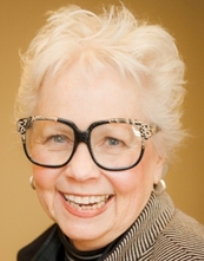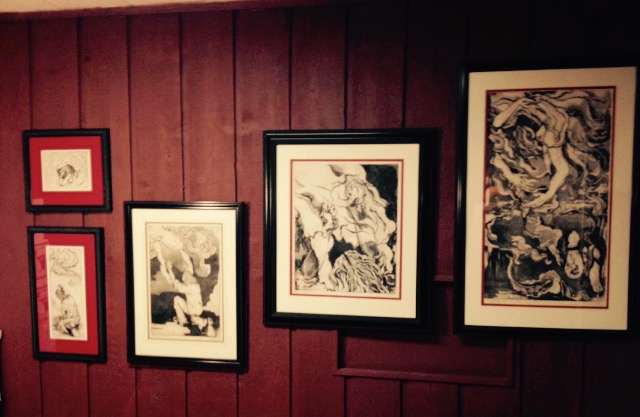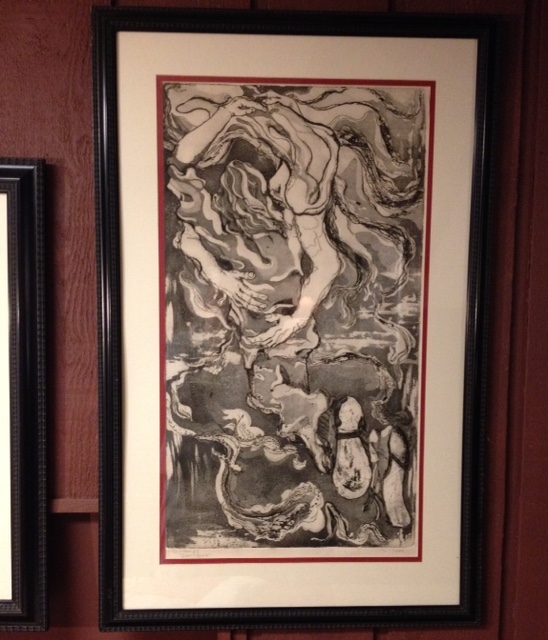Moving: Purging, Piling, Sorting, Storing
Our deadline to be out of the Mainstay Ministries office was April 1 of this year. This meant books were being packed for months ahead of that date and were staged in our garage, waiting to be assigned to room, bookcases, house or home-to-be in McHenry, Illinois. We don’t have a lot of valuables in the ways of possessions, but we do have bookcases and bookcases of books. Files had to be cleaned, out-of-date storage records had to be shredded, boxes had to be hauled to Goodwill, three metal desks and four empty file cabinets needed to find other homes, equipment in the office kitchenette needed to be re-assigned. My daughter, Melissa, swooped up the white storage cabinets, the divider screen, the microwave and the hot plate for the little apartment in her basement. Our son, Joel, took the half-size refrigerator for his rec-room bar area (serving sodas and fruit juices). Of course, in the middle of all this dislocation, we continually wondered if we were going to make it out on time. Moving often feels like an endless task of purging, piling, sorting and storing. A major relocation is a hated task dreaded by most. The goal was to clear out our finished basement in our home on Hawthorne Lane (where we have lived for the last 38 years, coming and going all over the country and all around the world but always returning here to familiarity and family and friends), to move three rooms of furniture from there to our daughter’s home—the barn-house in McHenry, Illinois, which is nestled just beneath the Wisconsin state line—in order to make room in the basement for the contents of our office suite. In order to meet this challenge, we needed to reduce the office in a three-month process of purging, piling, sorting and storing. This required changing phone lines, setting up computers, deciding on printers (having sent the oversize and expensive copier back to Canon) and overseeing the general planning that accompanies this sort of a move. Needless to say, it was unsettling, wearying, dislocating (I couldn’t even find my office Bibles). Because of physical
diminishments, every day it was necessary to keep looking to God’s hand
for help since David is 80 and I am 73. In addition, my husband was
determined to accomplish this move for as little money outlay as
possible. Hence, the regular rotation of the red office dolly with its
slightly flat wheels; chuck-chuck-chuckchuck-chuck-chuck back and forth down the halls of the LaGrou building where we have rented for the last seven-plus years. Chuck-chuck-chuckchuck-chuck-chuck. David has a gift of grit determination when he sets his mind to accomplish a task. And he has a way of doing it himself. How many times, during this move, have I heard him warn me off, “I’ll get it, Karen. Don’t touch it. I’ll get it!”? Chuck-chuck-chuckchuck-chuck-chuck. Despite the exhausting work, there are some advantages to this relocation. First, we will save $800 a month in rent. Since we left our national broadcast some 20 years ago, where we had a donor list of 35,000 people, we are now supported by some 400 faithful friends. Of course, our staff is smaller, our operations are not so far-reaching. We are no longer broadcasting or televising every weekday. These donors regularly overwhelm us with their generosity, but at the same time, many are experiencing their own diminishing incomes. David and I certainly know what that is all about. Our annual donations are slowing. Let’s see: $800 times 12 months is $9600. In a yearly budget of some $100,000, this will be the margin of savings that could really help our chronically pinched income. Second, we need to reduce the material possession in our lives. David was sorting through some file drawers in the office and made the offhand comment, “You know, we’re really doing all this so our kids won’t have to.” When my mother died (two years after my father’s death), she left a four-bedroom home in Wheaton, Illinois, a 90-acre farm in Waterman, Illinois and a retirement trailer in Florida. Mostly, the “remains” of these three domiciles became the responsibility of my younger sister and me to purge, pile and assign. By the end of this move, our children at least will no longer have to worry about the five-room office suite on Hawthorne Lane two miles down the road from our house in West Chicago. I feel surprisingly unsentimental
about ditching, giving away and boxing up the material things we have
lived with all these years. My goal in this ministry life has been to
be able to shut the door and not look back should the Lord require that
of us. Looks as though I’ve been successful in achieving this attitude,
because I certainly am re-ordering this office, and our bedroom along
with the cozy basement in our home with its small fabric studio/guest
room without much emotional regret (any regret, actually).  Empty file cabinets Third, going through all this stuff evokes exquisite memories of projects we mounted, people we loved, sorrows we endured. Hidden away in those files are photos we had forgotten of wonderful places we have traveled to and the discoveries we have made. Praying grimly for help to get through this move, I didn’t realize that one of the delights of disorder is the unintentional review of overwhelming memories from over 50 years of ministry and marriage. Every drawer we purged held something delightful. Louise Gluck has written, “We look at the world, once, in childhood. The rest is memory.” There is something disarmingly childlike, adult-suspending in this looking back. It’s a little like the gurgling joy of a grandchild who has found some delightful toy hidden away. Did I really write that? I wonder. Did we build that whole outreach ministry? Did we have so many wonderful friends? The analytical gets suspended for awhile; the moving schedule is momentarily put on hold. The child within, who loves to hoard treasures, emerges. We could still mount that hospitality outreach, I think. We had spent months running focus groups, designing a church-related emphasis, but our plans were disrupted by a national campaign mounted against us by some ultra-conservative heresy hunters. There’s still time. The church, more than ever, needs to teach and model scriptural hospitality. I
pulled out two bins from a supply cupboard. These were the travel files
of trips I organized to take groups overseas. The nearby community
college offered courses in tourism that trained me how to set up
transportation and housing and site and museum visits so that I could
lead a group of 38 “pilgrims” to Spain. Here were pamphlets and budgets
and metro stubs and day schedules and group meditations. Eventually, my
sister Valerie joined me in this enterprise and together we mounted
three journeys to France. David and I planned trips to Vienna during
the Advent season, to Italy and to Budapest. These labeled folders held
lists of travelers, brochures of places to visit, negotiations with
hotels for group prices, restaurants recommended by tourism groups, and
my correspondence with private guides who shared their wonderful
knowledge of their own countries with “pilgrims” who made pilgrimage
with us. The retrospective transit through those files has been an
evocative journey literally around the world.
The Hungry Souls file drawer held templates of eight years of Advent Retreats of Silence, three years of half-day getaways for Summer Slowings for the Soul, a scheme for a silent retreat for three days away at St. Mary’s Monastery in Moline, Illinois. Here was the bulletin for “A Gentle Healing Service for Men and Women Who Suffer From Childbirth Losses.” Notes show the progress over seven years with some 250 listening groups to develop the architecture and theology on listening; a whole file box is dedicated to this wondrous learning curve. Pausing to re-read a book on icons (unlike David, who relentlessly plugs away at his moving tasks, I browse, not unaware of the red dolly chugging away in the background: chuck-chuck-chuckchuck-chuck-chuck), and I was reminded of the adult course I took at the University of Chicago titled “Russian Religious Thinkers.” Partly, this attendance was because of my interest in Dostoevsky, Tolstoy and Solzhenitsyn (three brilliant Russian religious writers), but the afternoon I spent going over my class notes and re-reading the Xeroxed pages provided by a very quirky female professor were a delight. The writer Gluck may think that we only live once during childhood but somehow has not discovered the fact that memory allows us to re-live and re-live again the joyous moments that once were. I had loved the mental challenge of this academic study as well as the spiritual food that fed my soul from reading these thinkers plus the Russian intelligentsia I had never before met—Solovyev, Berdyaev, Rozanov, Shmemann, Meyendorff. Here they were now, like old friends, stored in these bins. And I picked them up and began to read again: chuck-chuck-chuckchuck-chuck-chuck. For a while the purging, piling, sorting and storing went on pause. In whom we move, and live and have our being. This sorting, this child-like delight of re-entering and re-living the past was unexpected, unanticipated. My mindset was determined to just get through the wretched tasks of reducing five rooms to three, of emptying the garage by sorting boxes, further purging, additional storing. Like a mantra, I kept hearing, In him we live and move … live and move … and move. I know this is not what the Scripture means, but I kept thinking of the Acts 17:18 (NIV) passage: “For in him we live and move and have our being...” Then unless we think we were abandoned, we discovered that an odd assorted moving crew pitched in at each stage of our dislocation exactly when needed. (Why does help always come from people you never think to ask?) Bemoaning the task at hand at our hairdressers (yes, she does cut and shape both of our heads of hair), Donna suddenly volunteered. “Hey guys! I have some time this spring before my shop schedule begins to get busy. Why don’t I come and help you?” And she did (her father once owned his own moving business). “This is fun,” she declared. Together, we emptied the shelves in the supply room and she cleaned down the cupboards. She packed everything in the kitchen cupboards into boxes, loaded it into her van to drive down the road to our house, but first scrubbed the refrigerator and vacuumed the carpet. “Hey David,” said a young friend my husband has been mentoring. “Why don’t I bring my truck and the Somali refugee kids Danielle (his wife) and I have been mentoring?” And so he did. In three trips and a morning, Crilly, our friend, and four strapping, strong college kids, moved the files and the desks that were too big for our little economy car and wrestled everything down the stairs to our now nearly empty but comfortably finished basement. Our son-in-law
loaned us his truck. Our daughter made room in their house for the
furniture we planned to take to them as we transition between our home
and their country house anticipating semi- retirement. One of our sons,
the one who lives nearest, spent a Saturday morning with a rented truck
from Menards and we emptied the office. Emptied, cleaned it. Turned in
the keys. We did agree that we were exceptionally glad we hadn’t left a
move like this to three years down the road when David will be 83 and I
will be 76.
Helping hands were all around. Every time we hauled a stack of boxes or a piece of furniture down the LaGrou hallway, someone came past to hold open a door, someone was on the sidewalk to help us leverage a bookcase into a vehicle. Passing strangers eagerly offered help. One woman, a smoker, who we saw daily over the years while either coming or going but always during her smoking break, called out, “I’m going to miss you. It won’t be the same not having you stop to say ‘Hi’!” The most amazing thing is this: Despite the terrible task of reducing a five-room suite to a basement area with three rooms, despite our age and the fact that we didn’t hire a moving crew (not even two men and a truck), despite the fact that we moved heavy things almost every day over a whole month, neither David or I (Did I say he is almost 80 and I am 73?)—neither of us pulled a muscle, put our backs out, dropped anything on our heads or on our toes, broke a bone, sprained an ankle, closed a door on our fingers, or slipped and fell. But then, “In whom we live, and move, and have our being.” Or perhaps—moving is exactly what is intended in this Scripture. Perhaps this is a passage to remember for all the moving days of our lives. Chuck-chuck-chuckchuck-chuck-chuck. Karen Mains NOTICESFive Signed PrintsWe are turning the little downstairs bedroom (which two sons have inhabited, in addition to various live-ins, my brother-in-law’s gardener—a long story—and boyfriends of one granddaughter) into our office storage space. This room also served as my “fabric studio,” which had been set up with a sewing table, a sewing machine, a fabric art library and an upholstered chair to settle into for comfortable hand-hemming or mending. The rough cut siding of the room had been stained a rich wine color, the cement floor covered with red concrete paint and the long wall, which held cutouts where fish tanks once perched, compliments of our eldest son, had been almost covered with five signed prints given to me by a student artist when David and I were pastoring Circle Church in the heart of the inner city of Chicago. They are a little rough and unformed in their artistry, but I love them—mostly because they illustrate from small to large the cry of the human heart for a God to embrace, receive, overtake and infill it. That process of being filled and then living by the life of the Spirit is also ragged, I discovered. Walking in the presence of Christ through the reality of the possession of the Holy Spirit is bumpy, on-going and manifested by continuous acts of repentance, forgiveness, abandonment and obedience—definitely an unfinished state, much like the prints that I have loved through these years. The artist, Charis Hathaway, titled her work “Spirit Power,” but a granddaughter, when she was about three years of age, studied them closely one day as she paused to climb the basement stairs. “Hep me! Hep me!” she said. I think I like the little child’s nomenclature best. The reason these prints move me is that at that time in my life, when we were in an inner-city pastorate, I was hungry for a work of the Holy Spirit that would embrace, receive, overtake and fill me. I was tired of powerless Christianity and wanted the proverbial “something more.” This was during a national cycle of arguments over the theological role of the Holy Spirit in the life of the church; there was a moving of power and miracle-working authority (deemed the “charismatic movement”) happening in many places in the world. I, a child of Baptist, fundamentalist background, knew next to nothing about the Holy Spirit, either theologically or experientially. The prints, as I’ve lived with them on one wall or another through the years, remind me of that hunger—something given to me that came from outside of my capabilities or design. The eventual climax of the art—the last print and the largest—beautifully conveys to me the desire and the satisfaction of that desire that God worked in my life during those decades. I am reluctant to sell these five prints—they hold such personal meaning—nor am I sure anyone will want a whole wall or a stairwell-full of swirling lines that impressionistically represent “spirit power” or mankind’s need to be “hepped.” They are beautifully framed; my daughter and I agree that framing pictures and paintings with design ability is one of my gifts. However, with all the moving that is going on, I will not have a place for them. So today I am praying, Lord, find them a home. Find them a home. I’d like to sell the five continuous prints that illustrate human longing and divine filling for $1200. They are an apt representation of the heart’s hunger for God. The monies will not be used for personal wants but to advance some ministry schemes I have not been able to launch due to a lack of funds. This ministry, after all, is called Hungry Souls. Let me know if you are interested by contacting karen@hungrysouls.org.
Reminder!The Soulish Food e-mails are
being
posted biweekly on the Hungry Souls Web
site. Newcomers can look that over and decide if they want to
register on the Web site to receive the biweekly newsletter. You might
want to recommend this to friends also. They can go to www.HungrySouls.org. Hungry Souls Contact InformationADDRESS: 1800 W. Hawthorne Lane, Suite K |
 Karen Mains This sorting, this
child-like delight of re-entering and re-living the past was
unexpected, unanticipated. My mindset was determined to just get
through the wretched tasks of reducing five rooms to three, of emptying
the garage by sorting boxes, further purging, additional storing. Like
a mantra, I kept hearing, In him we live and move … live and move … and move. I know this is not what the Scripture means, but I kept thinking of the Acts 17:18 (NIV) passage: “For in him we live and move and have our being...”
BOOK CORNER
   The Peaceable Kingdom The Lamb's War The Peculiar People [Quaker-movement trilogy] by Jan de Hartog
A novelist, playwright, activist, his range of creative expression ranged widely from the sea-faring nations (and the captains and sailors who steered the little tugs and huge trawlers), to the Dutch South East Indies in the last days of the colonial empires, to the stunning stories of inner conflict and outward expression of the Quakers as they formed as a religious group that challenged the ecclesiastical norms, consequently suffered, then immigrated to the United States, and successfully established themselves on America’s shores and among the westward expansions. For years my writer friends and I collected the works of those successful and popular writers who integrated strong, honest and winning themes about Christian spirituality into their published writings. We weren’t looking for propaganda, but reality told with literary excellence. In my mind, de Hartog’s work comes at the top of the list; I am surprised he isn’t included in the lists of excellent American writers (he immigrated here after World War II) the literary establishment often touts. He certainly holds his own among the best. A Quaker himself, the son of a Dutch Calvinist minister, Jan de Hartog often breaks the mold with the use of inner spiritual conflict (something that may be familiar to many readers). Deceased in 2002, his books deserve
another round. Facebook reviewers regularly rate his works five-stars.
If you are going to read Jan de Hartog, start with this series. The Peaceable Kingdom is a stunner. |



